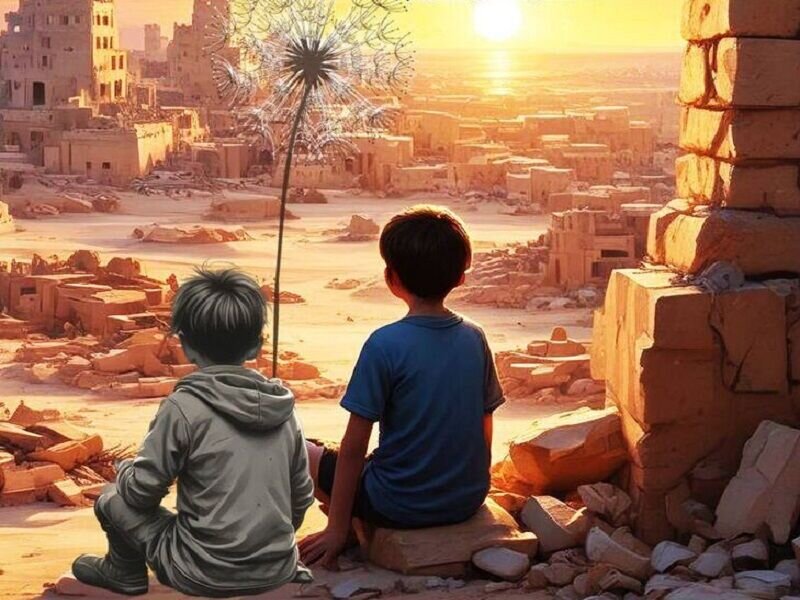Art event supporting Gazan children underway in Tehran

TEHRAN- An artistic event titled "We Will Not Fade Away," showcasing the support of Iranian children for vulnerable children in Gaza and Lebanon, is underway at the Cultural and Artistic Creations Center of the Institute for Intellectual Development of Children and Young Adults (IIDCY-Kanoon) in Tehran.
This international artistic event has been organized by the IIDCY, in collaboration with 13 NGOs, and the National Network of Humanitarian NGOs, IRNA reported.
The exhibition features over 75 paintings by Iranian children, performances, video art, letter-writing, olive tree planting, and the creation of origami cranes by participating children, among other artistic activities aimed at supporting vulnerable children in Gaza and Lebanon, the report added.
Specialized meetings are also being held with university lecturers focusing on media, children, and NGOs.
After the exhibition concludes on Monday, all artistic works and programs from this event will be sent for display to three international gatherings in three different countries.
UNICEF has recently highlighted the devastating impact of the ongoing war in the Gaza Strip on children. According to the latest estimates from the Palestinian Ministry of Health, at least 14,000 children have tragically lost their lives, with thousands more injured.
There are no safe havens left, and every child in Gaza has been subjected to the harrowing realities of war, leaving scars that may last a lifetime.
Approximately 1.9 million individuals—about 90 percent of Gaza's population—are believed to be internally displaced, with children making up half of this number.
They are facing severe shortages of essential resources such as water, food, fuel, and medicine. With their homes destroyed and families fragmented, many children have been displaced multiple times, suffering the loss of homes, parents, and loved ones. It is crucial to ensure their protection and to maintain access to the vital services they depend on, including medical facilities and shelter.
SAB/
